If plans and bills do not fail, we are a week away from the debut of the Intel Arc A750 and Arc A770 graphics cards, finally on the US market, as the technology published a few days ago. For many, a long-awaited moment that will force those who until recently said “to know from good ink” that Intel is backing down and canceling the project to furtively look the other way. And it’s because there are only a few days left until the first pieces go on sale, and some of them have already reached some media on the other side of the pond, who are testing them.
And how do these tested units perform? Well the first impression is basically positive, if we remember that we are talking about the first generation that faces the veteran of AMD and NVIDIA and that, as we will see below, it finds accommodation between the last two generations of both manufacturers (not counting RTX 40 and RX 7000 , of course). So we are talking about a design that can provide us with very decent performance (in some tests even above the RTX 2080) for a significantly lower price.
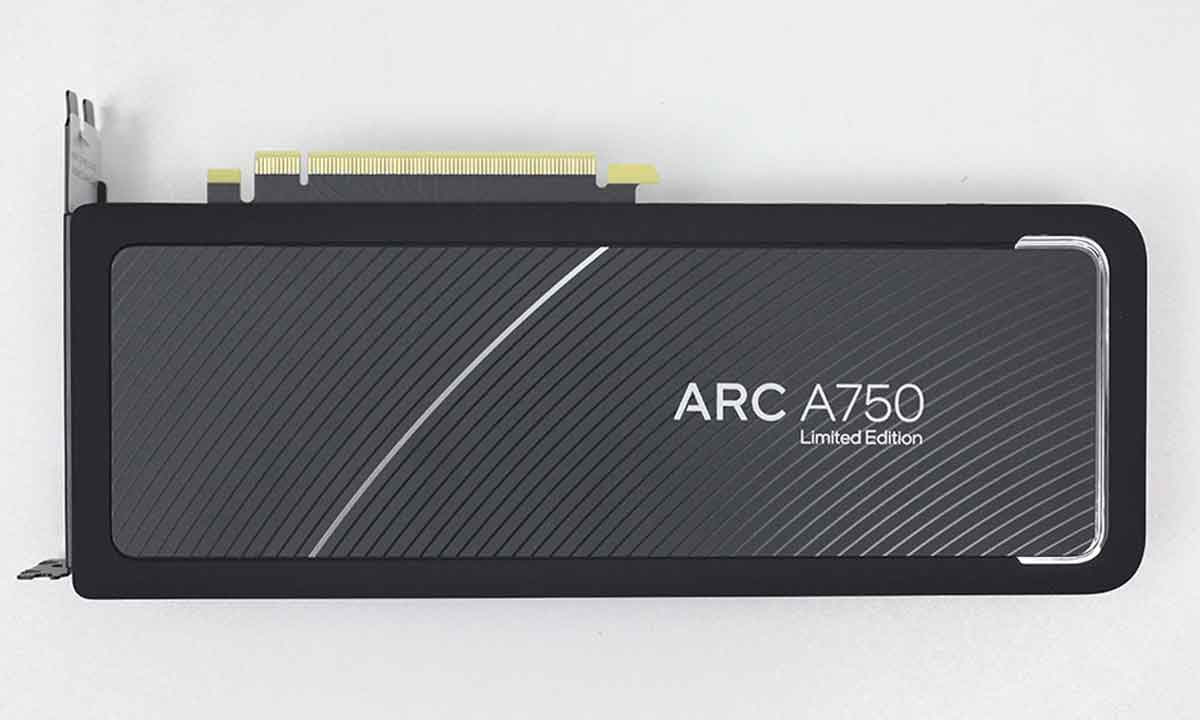
Of course, we have to add to this the problems that Intel had with the design of drivers for its graphics. It seems like those issues would have been overcome by now, but we’re not clear on how much that has affected his current situation in regards to his potential. Does this mean that the current drivers already allow you to get all the performance of these Intel Arc A750 and Arc A770? Or maybe on the contrary there is still room for optimization and later Intel may surprise us with a leap?
Before we see the results, let’s recall its specifications:
| Model |
Intel Arc A750 |
Intel Arc A770 |
| Price |
290 dollars |
350 dollars |
| cores |
3,584 |
4,096 |
| rendering units |
112 |
128 |
| Freq. Base |
2050 MHz |
2,100 MHz |
| Freq. Turbo |
ON |
ON |
| Freq. Memory |
2000 MHz |
2187 MHz |
| GPU |
ACM-G10 |
ACM-G10 |
| transistors |
21,700 mil |
21,700 mil |
| Memory |
8 GB, GDDR6, 256-bit |
16 GB, GDDR6, 256-bit |
So we have Intel Arc as very affordable offer, which, without providing a high-end gaming experience, is more than enough for entry-level and mid-level needs, but for users who want to play. If the Intel Arc A770 has double the RAM along with a slightly more advanced GPU, it makes a difference. In some cases, a minimal difference, but this is more striking in other tests, in which it manages to differentiate itself from the A750.
So seeing the results we can confirm that the Intel Arc 7 series coming to directly compete with GeForce RTX 3060 and Radeon RX 6600 XT, two bestsellers that, with more than competitive prices, can pose an interesting threat. In other words, Intel’s initial offering already seems mature enough to make a splash in this market segment.
Without further ado, let’s take a look at the results obtained by both cards in tests conducted by TechPowerUp. Click on the images to view the tables in full size.
game performance
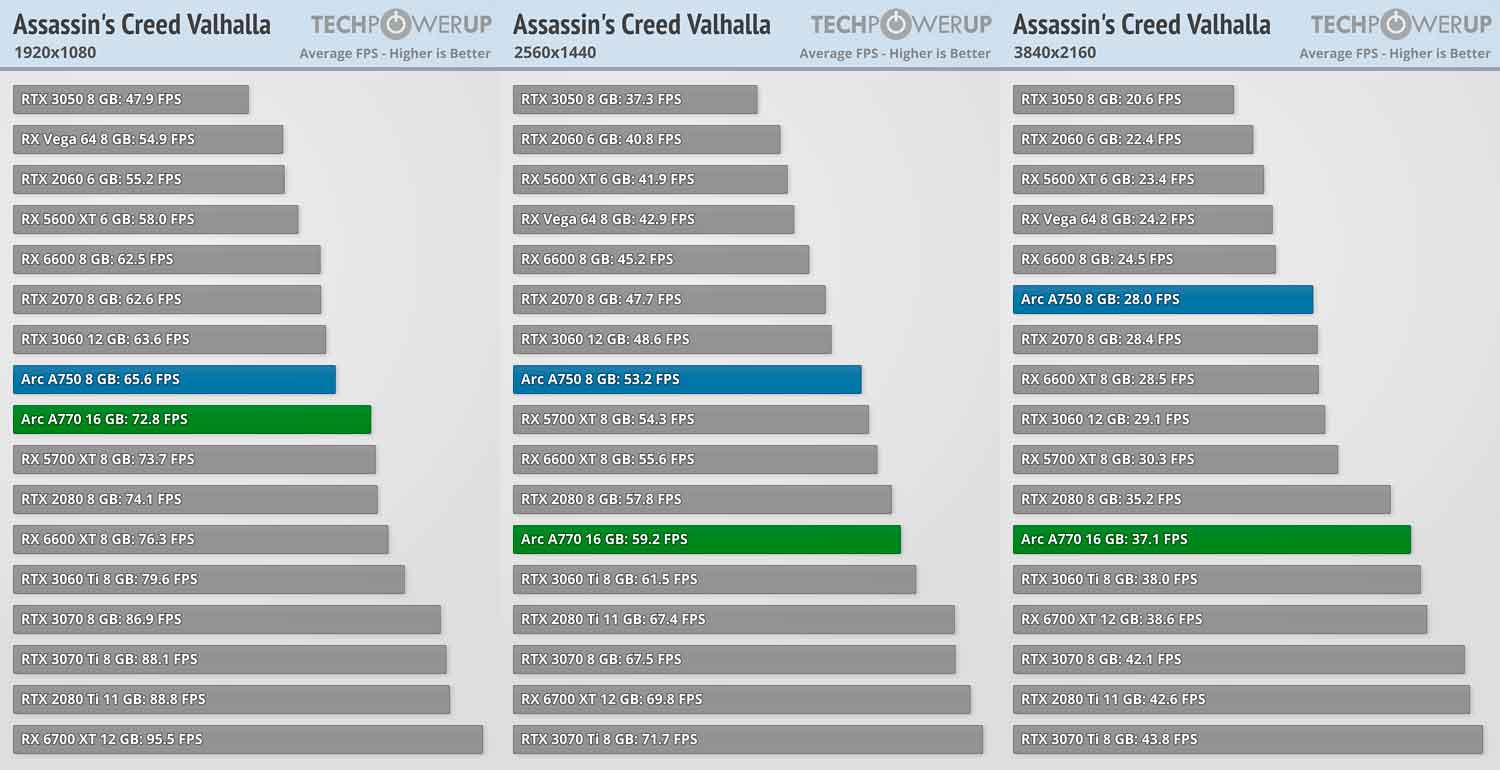
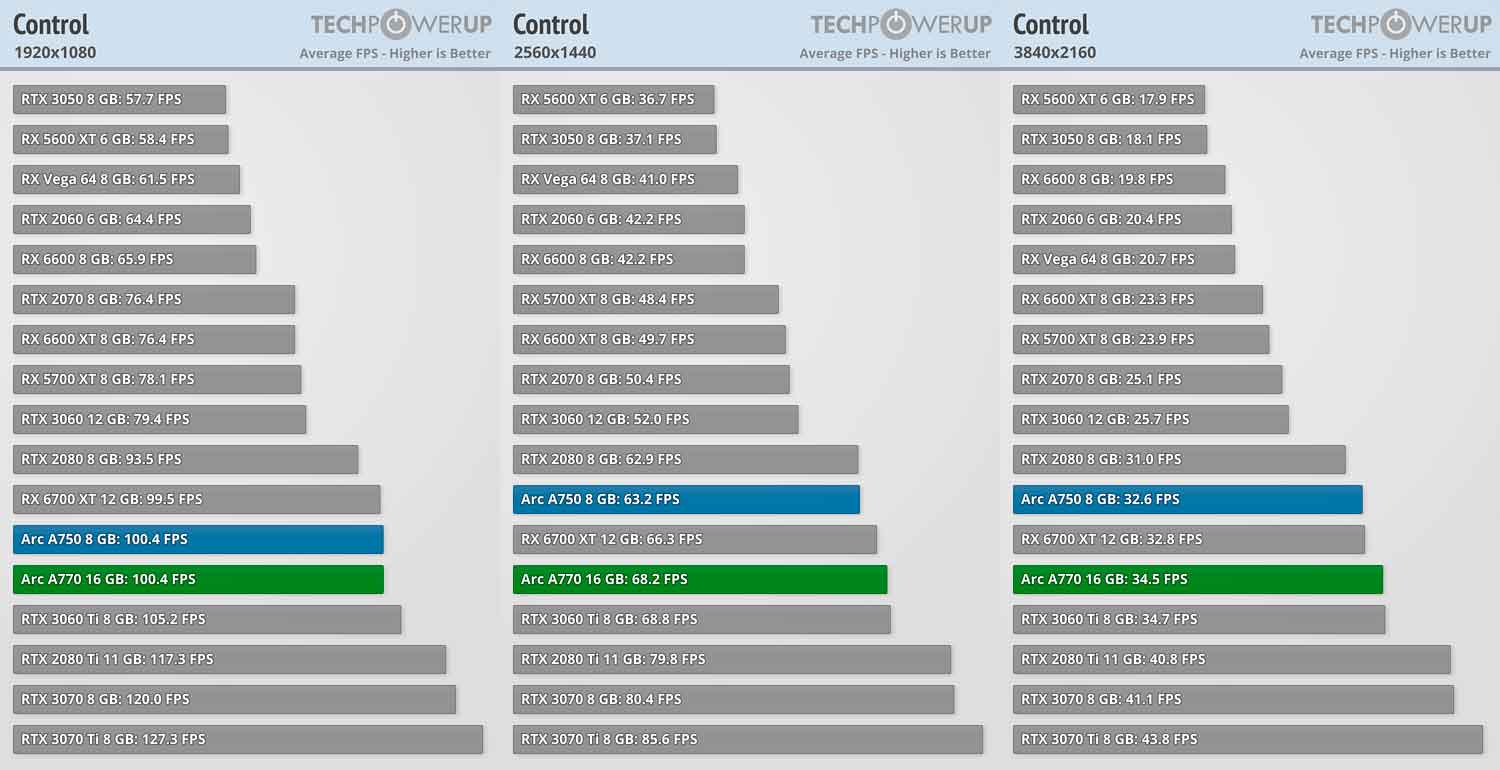
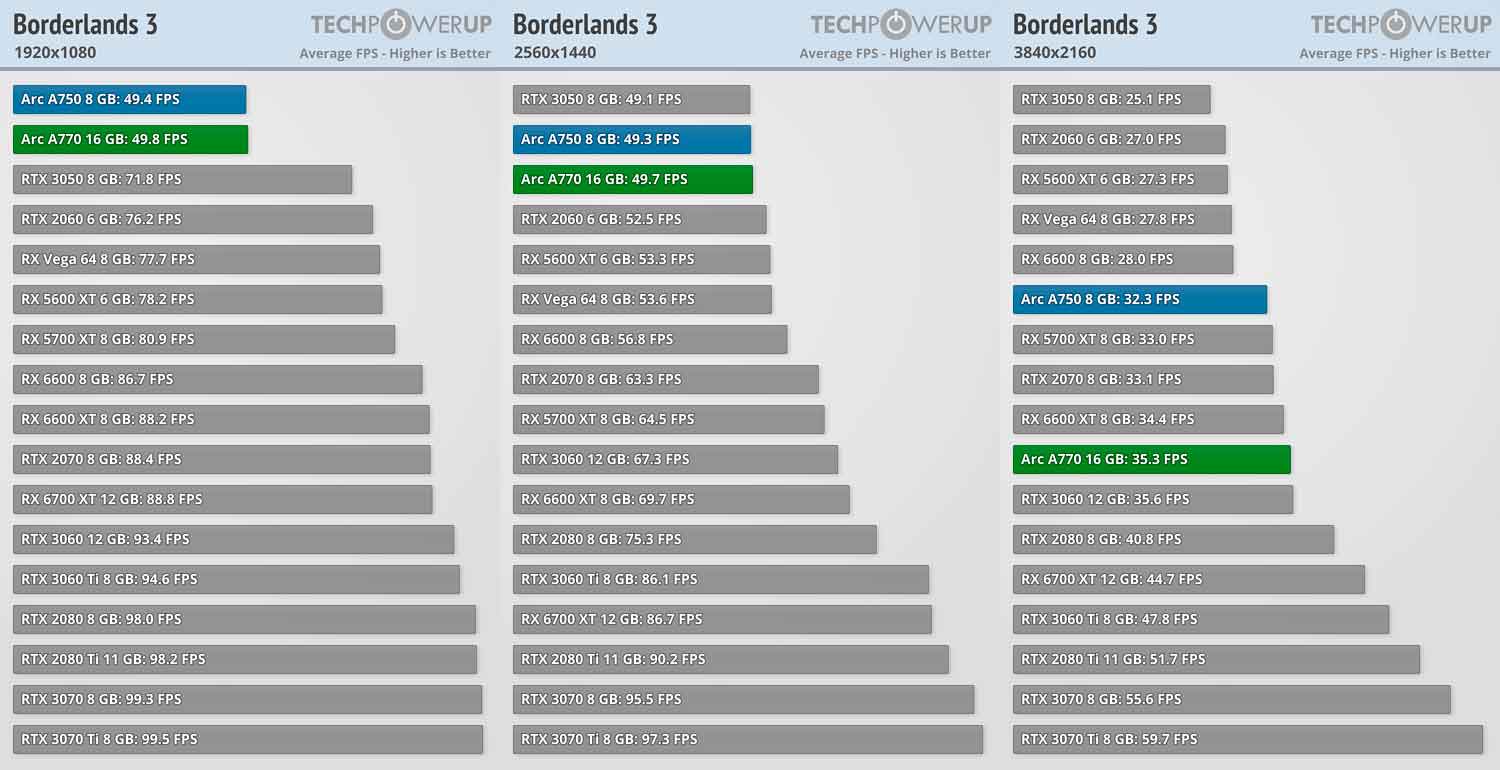
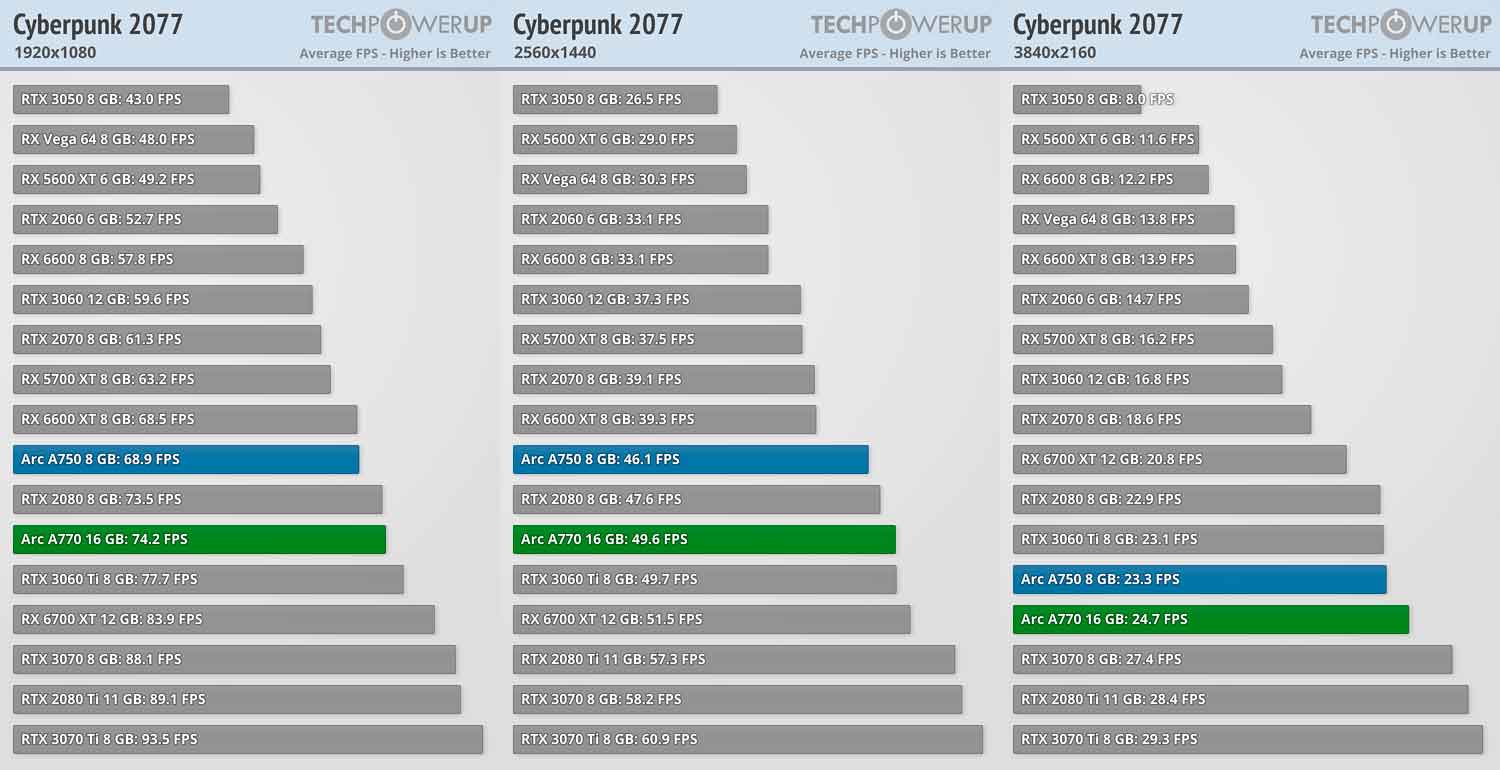
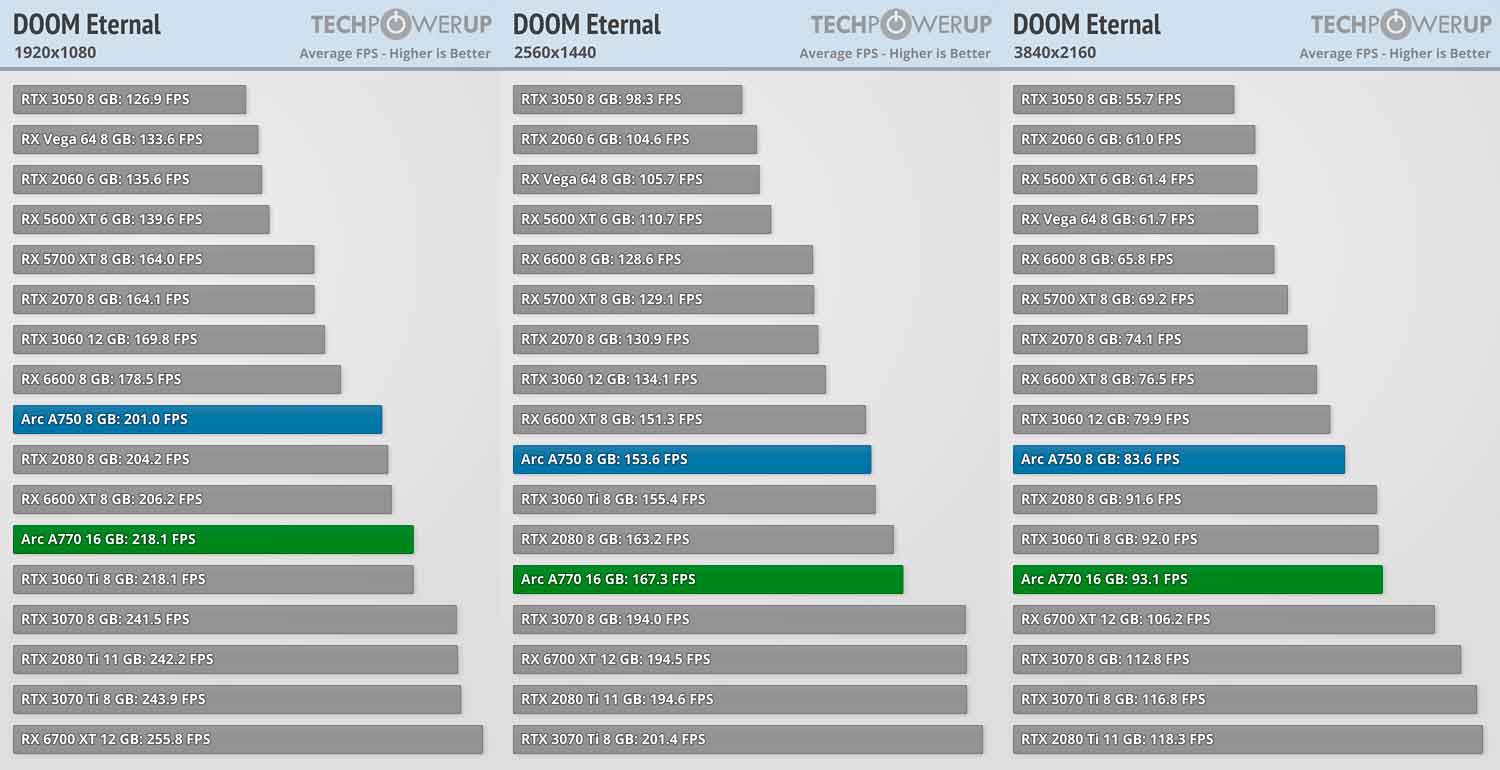
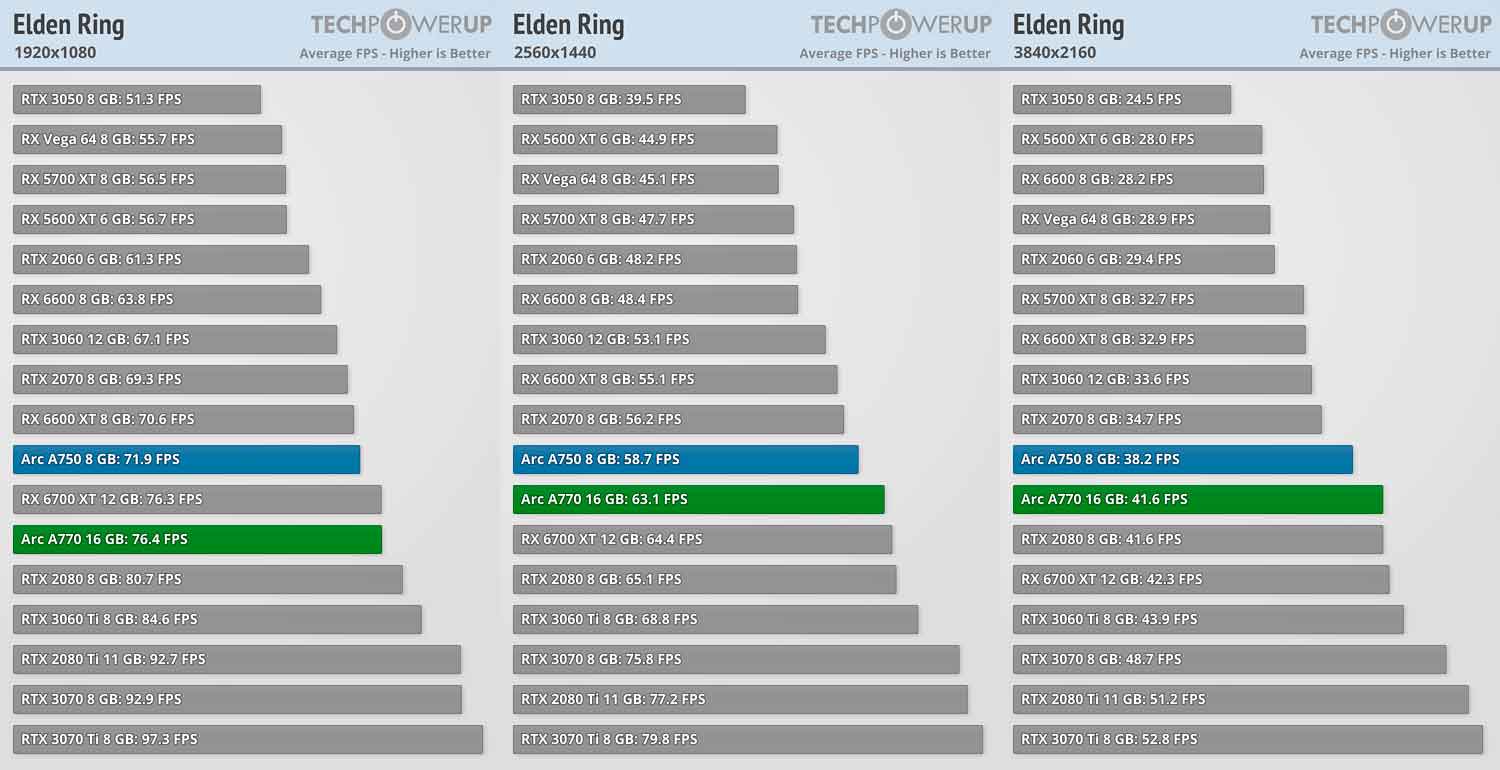
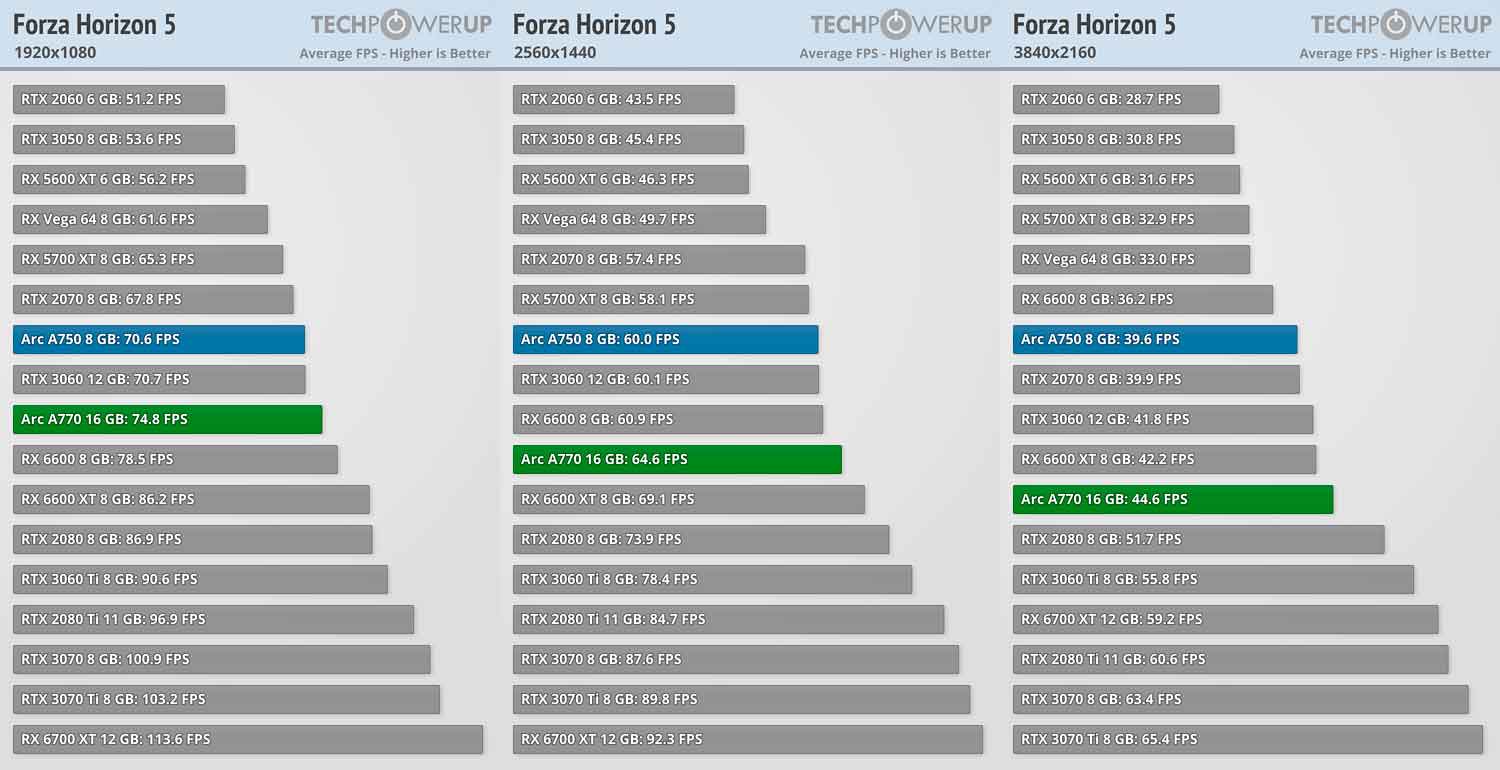
Ray watched the testing
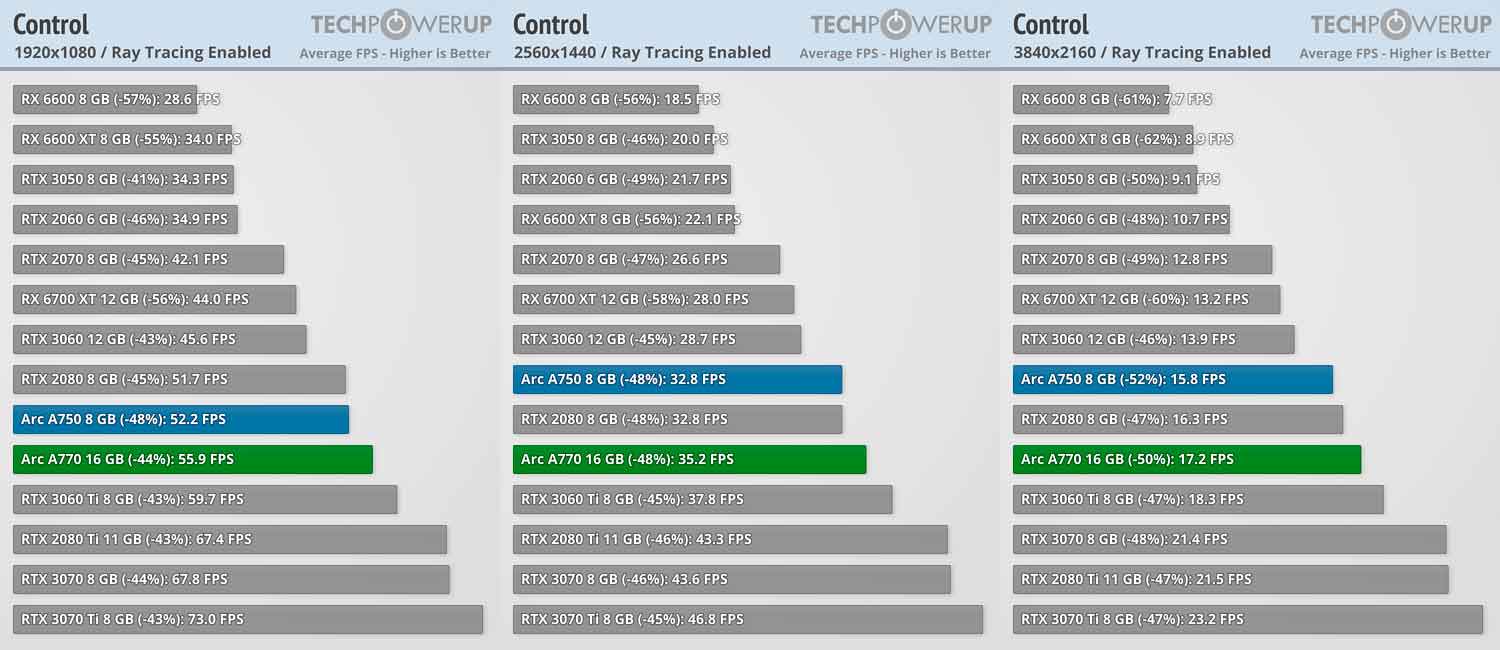
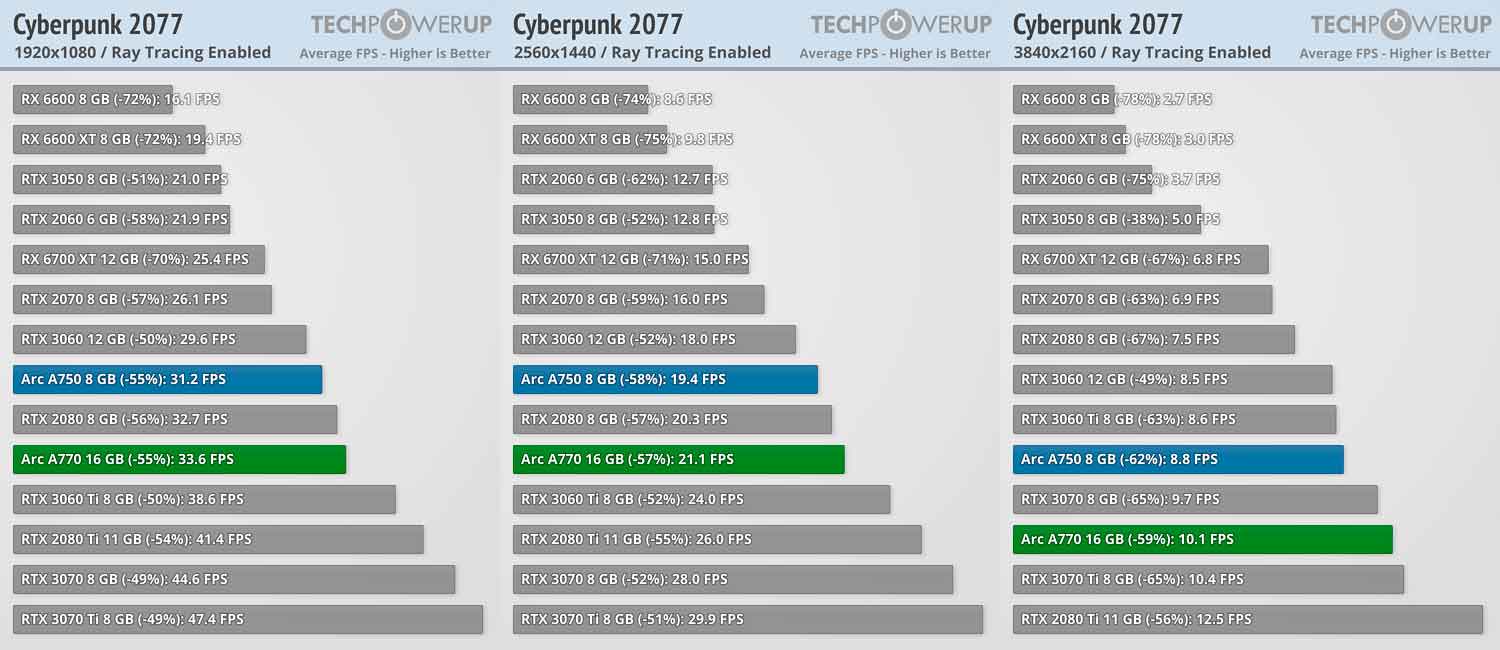
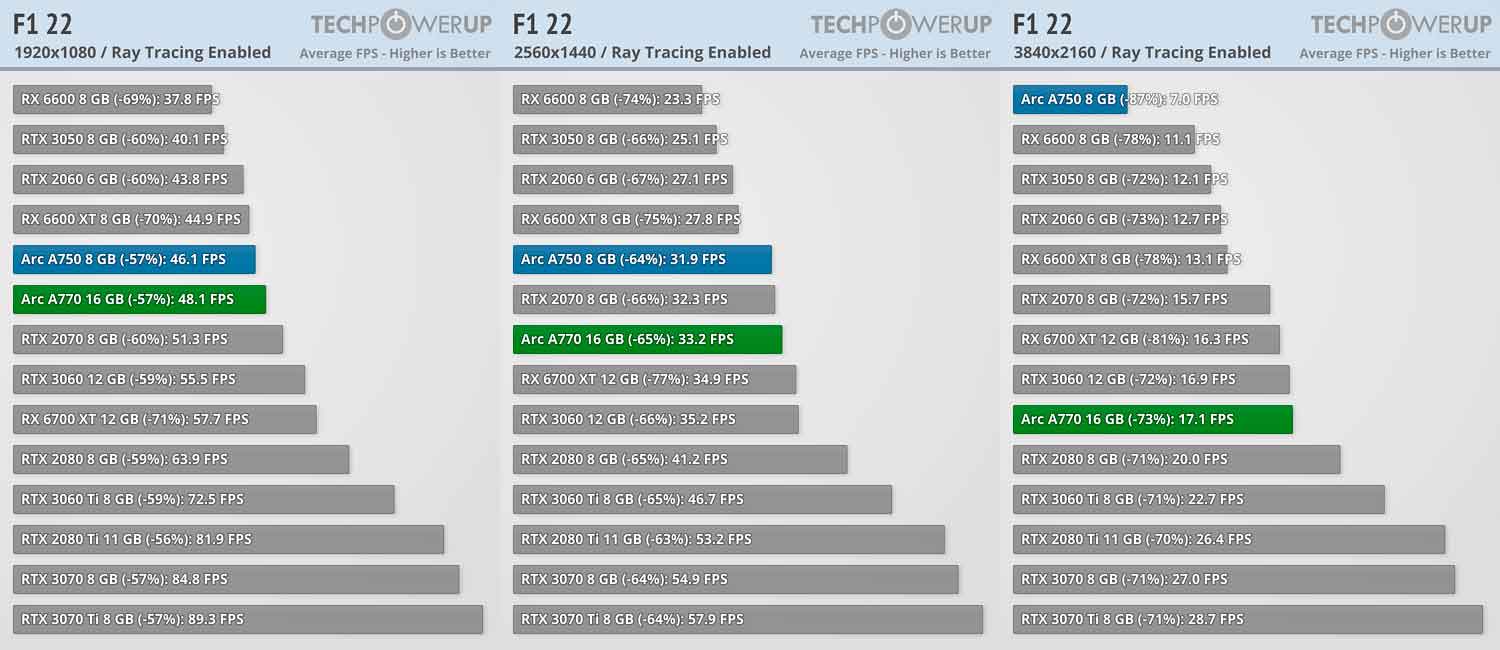
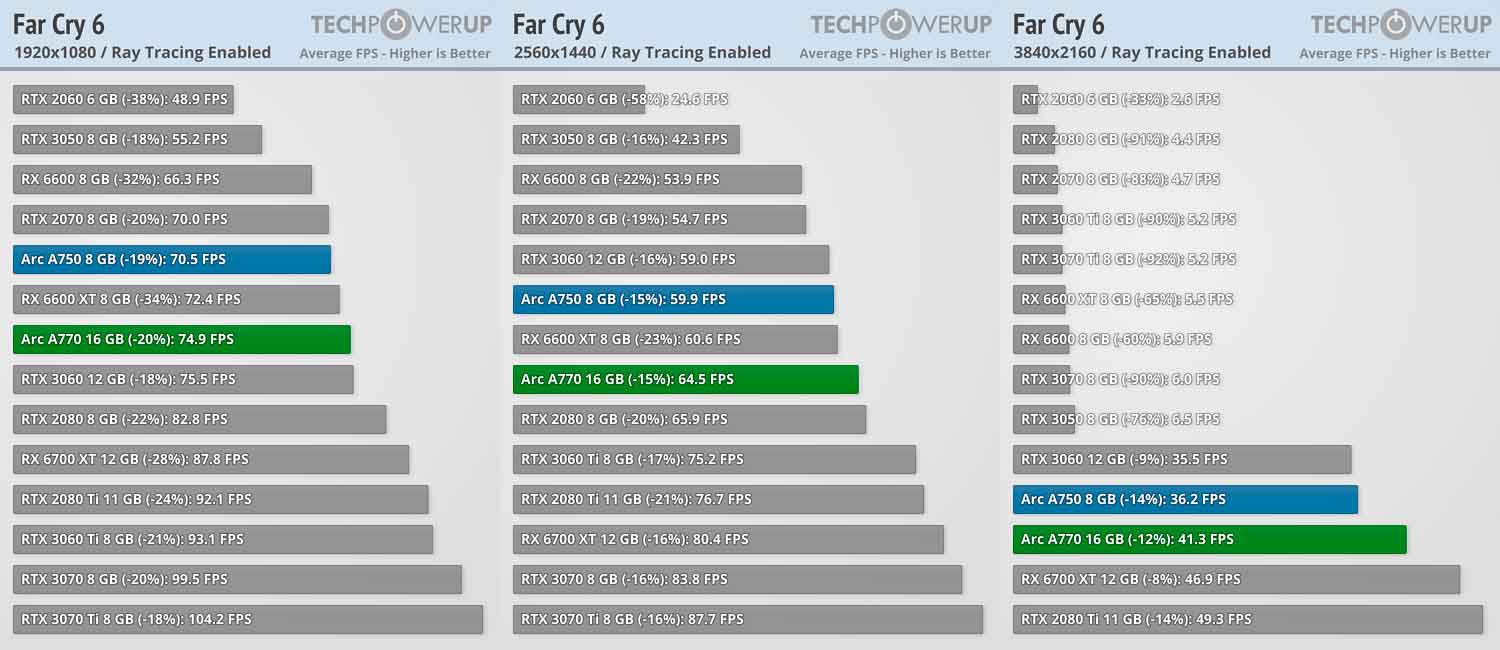
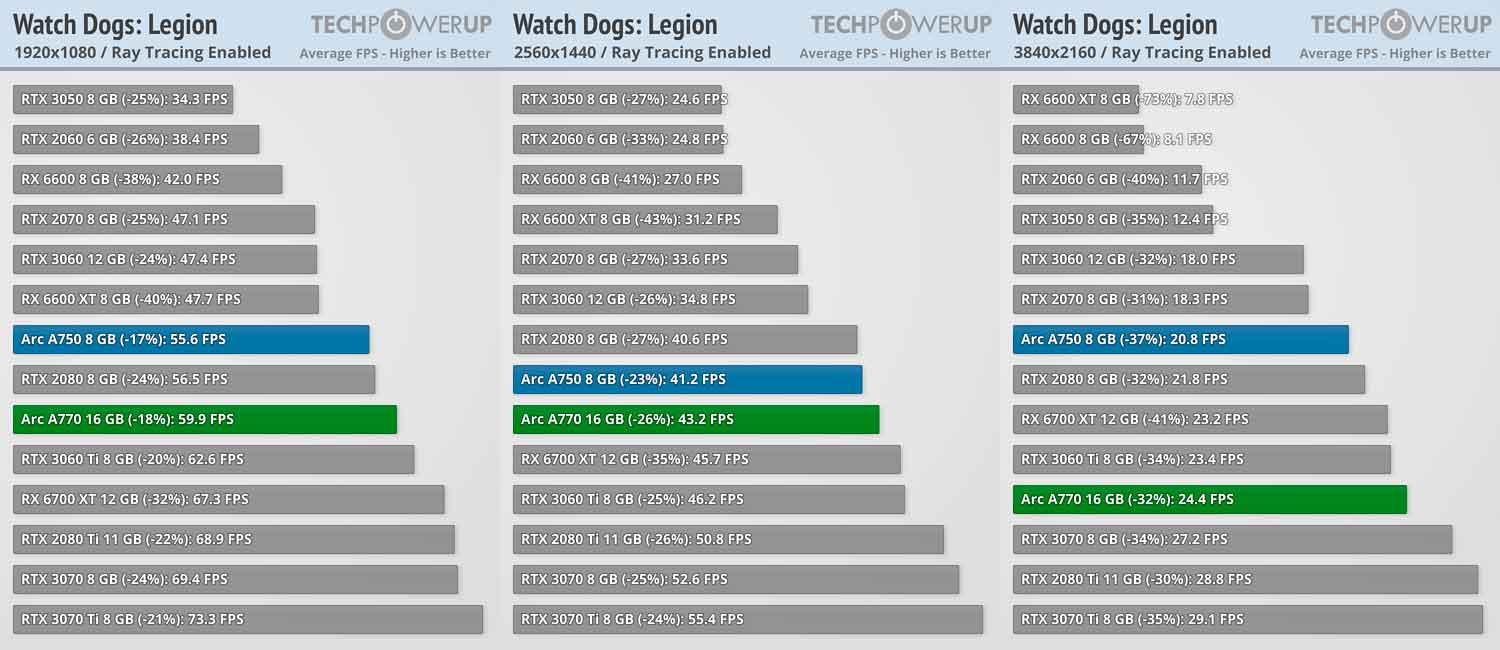
As you can see, we can confirm that Intel has done a good job with this Intel Arc 7 series, especially when it comes to 4K resolution, and that its ray tracing technology is also very competentespecially if we take into account what was indicated above, that we are talking about the first generation, the Alchemist, and that therefore an important evolution can be expected in the following generations.
More information and images: TechPowerUp
